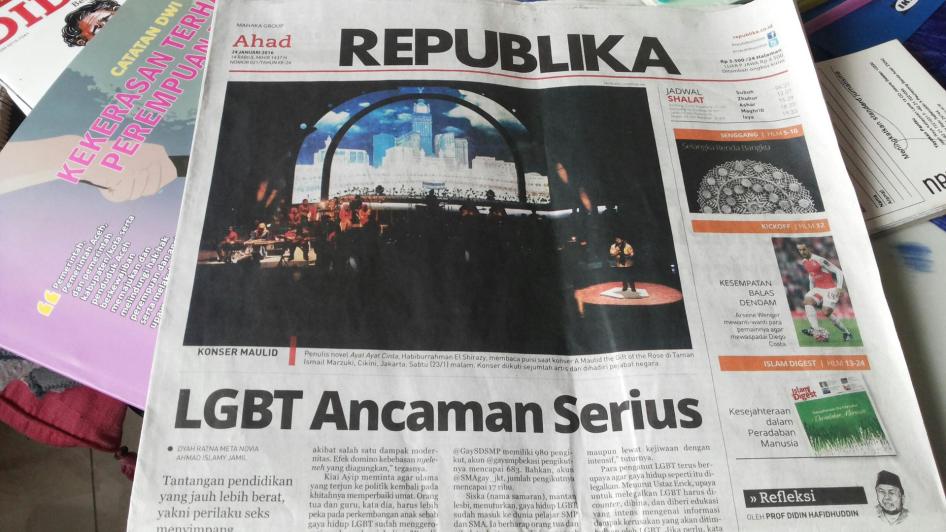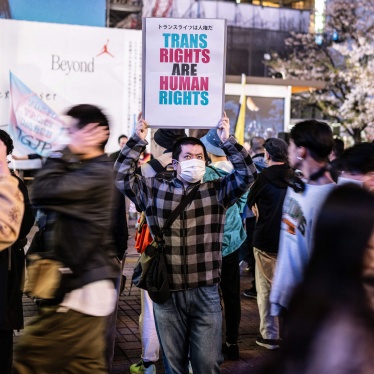The Indonesian government’s rhetorical onslaught on lesbian, gay, bisexual, and transgender people continued last week with the national broadcasting commission (KPI) banning TV and radio programs that portray LGBT lives as “normal.” But if censorship isn’t bad enough, here’s the reason they claim they’re doing it: to protect children.
What?
At a meeting last week, KPI officials were joined by the Indonesian Child Protection Commission in saying that they needed to block any content that might encourage children and adolescents to imitate or justify “LGBT behaviors.”
First, blocking LGBT content is outrageous – both in the politicalized timing of its delivery (as other Indonesian public figures denounce LGBT people), and in its sledge-hammer methods (blocking all information about gender and sexuality contravenes international human rights standards and best practices).
The United Nations Children’s Fund, UNICEF, has been clear that rather than blocking information about LGBT lives from children, governments should “repeal laws that entrench such discrimination, and in particular those that criminalize…‘promotion’ of homosexuality, or the association of LGBT children and individuals.” The UN Committee on the Rights of the Child has urged governments to repeal laws that restrict LGBT information and “ensure that children who belong to LGBTI groups or children of LGBTI families are not subjected to any forms of discrimination by raising the awareness of the public on equality and non-discrimination based on sexual orientation and gender identity.”
Second, the censorship move tests KPI’s own mandate. Its 2012 Guidelines for Broadcast Practice and Standard for Broadcast Programs prohibits programs that stigmatize “people of certain sexual orientation and gender identity.”
KPI’s historical treatment of LGBT people has been spotty. In 2012, activists in Jakarta demanded a meeting with KPI to complain about “Indonesian Idol” judges bullying effeminate male contestants. KPI dismissed the claims, and the National Human Rights Commission was called in to mediate – eventually resulting in KPI’s apology.
Last month, as Indonesian national and local officials made a spate of public slurs against LGBT Indonesians, the Alliance of Independent Journalists called for better media reporting on LGBT rights. In a 2014 report, the UN encouraged KPI to develop “reporting of LGBT news that is unbiased, constructive, and inclusive of [sexual orientation and gender identity] and human rights issues so as to improve public opinion.”
KPI should reverse course on last week’s decision immediately and focus its energy instead on upholding the rights of LGBT Indonesians in a moment when doing so could save lives.










